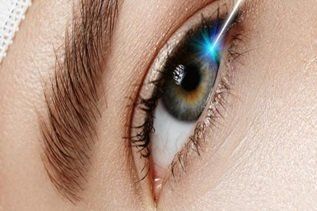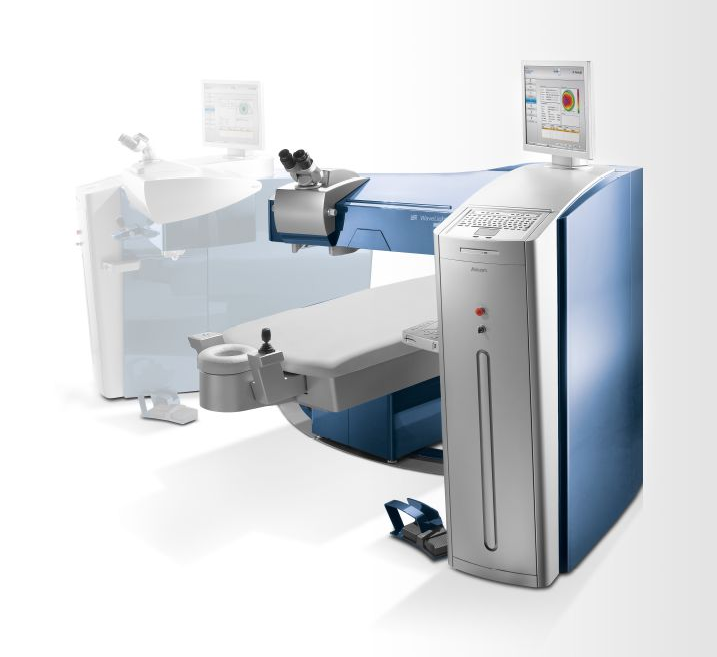Refractive Surgery Department
Laser vision correction
Laser vision correction is one of the latest technologies used to permanently treat vision defects, such as: long and short-sightedness, astigmatism, getting rid of eyeglasses, and medical contact lenses permanently.
Laser vision correction is one of the latest technologies used to permanently treat vision defects, such as: long and short-sightedness, astigmatism, getting rid of eyeglasses, and medical contact lenses permanently.
Stages of laser vision correction
- The doctor adjusts the LASIK device according to the patient's vision measurement.
- The patient's eye is numbed using local anesthetic drops.
- The eyelids are separated from each other using a special tool.
- The patient is asked to fix his gaze at a glowing red light until the operation is finished (about a third of an hour).
- The specialist doctor makes an incision in the cornea of the eye and then lifts a thin membrane so that the laser can reshape the corneal tissue, after which the membrane is returned to its place.
Factors on which the success of the surgery depends
- Corneal thickness.
- Pupil size.
- Topographic imaging of the eye.
- Absence of infections inside the eye such as: cataracts or glaucoma, iritis, or dry eyes.
- Corneal thickness.
- Pupil size.
- Topographic imaging of the eye.
- Absence of infections inside the eye such as: cataracts or glaucoma, iritis, or dry eyes.
Tips for the patient after surgery
Laser vision correction surgery:
- sleep for several hours.
- Avoid driving at night, especially during the first weeks of the operation.
- Use antibiotic drops to avoid eye infection or contamination.
- Use drops to prevent dry eyes.
- Take painkillers when you feel pain.
- Avoid looking directly at the light.
- Use the cloth to wash the face and forehead and avoid contact with the eyes.
- Avoid using cosmetics for at least a week after the surgery.
- Avoid swimming for a month.
- Use sunglasses when leaving the house, especially in the afternoon hours.
Laser vision correction surgery:
- sleep for several hours.
- Avoid driving at night, especially during the first weeks of the operation.
- Use antibiotic drops to avoid eye infection or contamination.
- Use drops to prevent dry eyes.
- Take painkillers when you feel pain.
- Avoid looking directly at the light.
- Use the cloth to wash the face and forehead and avoid contact with the eyes.
- Avoid using cosmetics for at least a week after the surgery.
- Avoid swimming for a month.
- Use sunglasses when leaving the house, especially in the afternoon hours.








